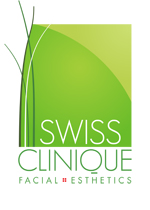Searching for the magic (and scientific) solution to skin cancer has been a primary effort in the medical field for years. How can we protect ourselves? How can we prevent it? Genetic predispositions aside, we know that using sunscreen is essential to avoid sun damage. Staying protected from the sun by staying out of it and avoiding tanning are huge. Aloe has been a popular post-sun skin treatment and even staying hydrated can help your body. However, what else is there? Especially for those who have already had some level of cancer?
Retinol
Retinol? It may sound like some fake magic “cure-all” imposter pushed by beauty bloggers. However, it does come highly recommended by them, and it’s also backed by doctors. It’s the best of both worlds.
Retinol is a less concentrated version of tretinoin. If you’ve struggled with acne, you’re probably familiar with a derivative of tretinoin, isotretinoin. This extra-potent acne fighting pill causes you to produce less oil, obliterating your acne. In some cases, those who have a lot of sun damage may be prescribed this medication because of its ability to improve wrinkles and other sun-induced blemishing. However, we’re here for the cancer-preventing powers of retinol.
Since it’s a less concentrated version of tretinoin, retinol has similar effects. Just like tretinoin, it can also reduce wrinkles, reverse sun damage, tighten pores, and stimulate blood flow and collagen production. Why use the less concentrated version though? Most people’s skin would have adverse reactions such as excessive drying and irritation. Though results will likely not be as dramatic, retinol is the gentler and safer way to go. Because retinoids encourage skin cell turnover, new skin should not be exposed to the sun. Isn’t it ironic, that a medication to help prevent skin cancer also makes your skin more prone to sun damage?
How Does It Work in the Prevention of Skin Cancer?
Now we know what retinol is, but how exactly do retinoids help prevent skin cancer? To start, it’s necessary to say that using retinol is not cure-all method. Notice the focus on the word “may”? Retinol may help prevent skin cancer. It has been known to work for some people, but like almost everything else, it doesn’t have a 100% success rate.
In fact, it’s been most useful for people who have already had some kind of skin cancer. Those with actinic keratoses are perhaps the luckiest in this realm because retinol not only prevents it, but can also have a hand in treating those who currently have it. Retinol is also beneficial in preventing squamous and basal cell carcinomas.
With its ability to stimulate skin cell turnover, blood flow, and collagen production, retinoids help get rid of the skin that’s infected. The higher turnover your skin has, the less likely cancerous cells can keep up. Retinoids, especially for preventative measures, are most commonly used as a topical.
In fact, you can purchase many products containing retinol over the counter. Obviously, these won’t be as potent as one that you may get from a prescription, but if you are concerned about your likelihood of getting skin cancer, choosing a product that contains retinol is a great choice for your anti-sun damage routine.
If you’re looking to take care of your skin well in advance, try out our Bamboo Firming Fluid by Eminence. This collagen-boosting concentrate feels just right on your skin while it works hard eliminating wrinkles and sun damage. Our line of Osmosis products also provides great benefits for protecting and rejuvenating your skin.

